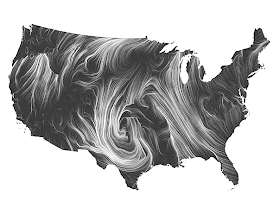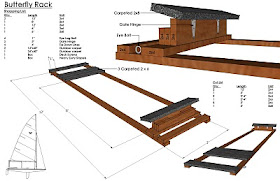GOOD VS. GREAT SAILORS
at 7.03.2011
by Pam
What makes a good sailor versus a great sailor? Doug and I were pondering this question the other day in relation to what needs to be taught to make a sailor great versus good since Cabarete is all about training great sailors.
It came down to a few questions? Which is 'good' and which is 'great'? Getting a perfect start every single race or getting a horrible start and being able to recover and come through the fleet and finish well? Having perfect boat handling or tipping, doing penalty turns and not losing any places? Picking the right side of the course every time or picking the wrong side and still finishing well?
I’d have to say that 'good' is perfect starts, flawless boat handling, and excellent tactics. And I’d have to say that 'great' is making mistakes and having the experience and confidence to remain undeterred and to hang in there and consistently bubble to the top.
Realistically, we’re human and we make mistakes. How often can you expect to sail without making a mistake? And how often have you made a couple of mistakes that ruined an entire race (if not the day)?
Doug’s resume says he’s a great sailor (or at least once was). When I watch him sail locally though, there have been many times when I wondered if he’s just a washed up, has been, bonehead. And then he’ll do something amazing that makes me realize he is indeed a great sailor.
The other day, the answers came to me. 'Good' and 'great' both require training. 'Good' is easier to learn because it feels good to learn it. 'Great' is harder to learn and doesn’t feel good at all. Doug does ‘good’ training on his own and does ‘great’ training when sailing with others at anything that isn’t an international competition.
On a windy day, Doug would head to the lake to train. He says he tacks, gybes, and rounds marks to exhaustion and then pushes himself just beyond that point. Most importantly, he forces himself to gybe at a certain point and not necessarily in lulls. I could sit at home and watch him on CSC’s harbor cam buzzing back and forth and then he would start tipping often and I was amazed at how long he’d continue to stay out after he’d started tipping. That is his 'good' training. He develops muscle memory to execute a tack or gybe under any and all conditions including complete exhaustion. Personally, I’ve never really done this unless I’m with Doug and he’s coaching me.
Any non-international sailing is 'great' training for Doug. His preparation for events is sloppy. Arriving late, forgetting equipment, sailing with damaged, improvised equipment or slow hulls. His attention on the race course isn’t all that hot either. Many things are second nature to him but I often get the feeling that he is intentionally dogging it. Now, I’m right there with him at these events and all his sloppiness makes my stomach hurt and just about gives me a heart attack. Doug, on the other hand, is unphased. Takes it all in stride and most of the time he bubbles to the top and sometimes he takes himself out of the competition with his sloppiness. It’s all part of his 'great' training. He had to make a few adjustments when he realized it was becoming part of my 'quit sailing' training.
The 'great' training has provided him with the confidence and experience to make quick on the water repairs and sail with compromised equipment, assess the start line and course from the shore or even the car on the way to the event, get a DFL start and look up and say this is going to be easy, do penalty turns without hesitation, and even take the time to stop and help others despite it slowing him down. So many sailors don’t want to do penalty turns or get all bent out of shape over the smallest of things. Doug takes it all in stride. He’s competitive for sure but few races mean that much to him and he has learned to take setbacks with a grain of salt. I’ve seen him refuse to do a penalty turn before and asked why later only to hear him say, ‘the guy was good and I wanted to stick with him but I didn’t sail through the finish line’. Once again, I realize it’s all training to him. I definitely don’t do any 'great' training.
It’s easy to see that an international competition would quickly separate the good from the great. Doug’s 'great' training provides him with a checklist of all the things that could go wrong and he diligently follows a checklist to make sure nothing is forgotten and nothing is left to chance and then when (not if) things go wrong, the experience and confidence kicks in and he knows he is prepared.
The interesting thing is that I like to compare sailing to life. What makes a person good versus great? I would probably say great people are defined by the way they handle adversity (and success). So I suppose those great people have some experience and confidence when it comes to adversity. I’ve watched Doug handle setbacks in his life with more patience than I could ever muster. I only recently realized his eye is always on bigger things and that all those little setbacks are of no consequence to him. I have much to learn from this great sailor (and man).






8/06/2013 4:38 AM
I remember reading this: The good sailor trims the sails after the wind shifts. The great sailor trims the sails right before the shift hits. Don't recall where I read it though.